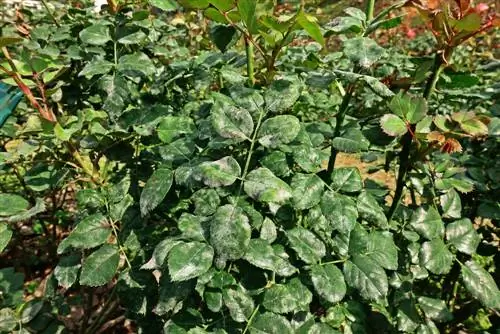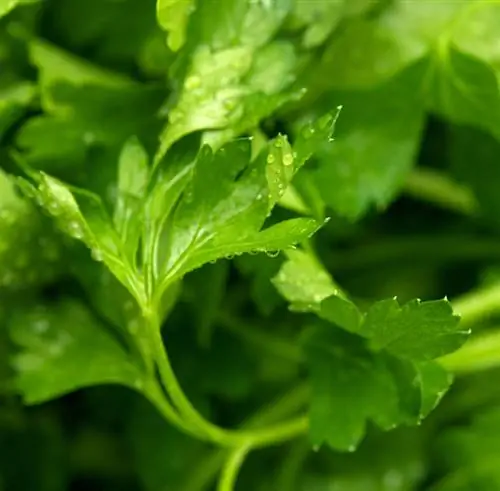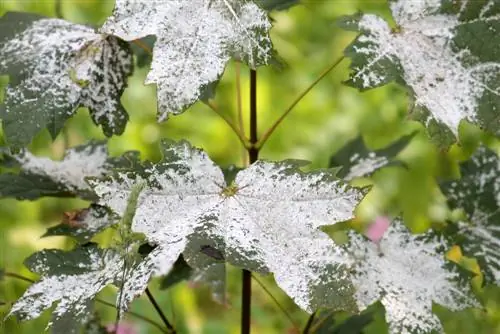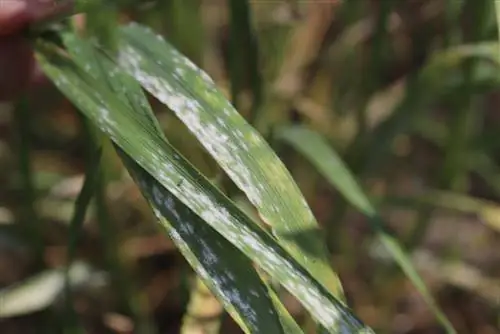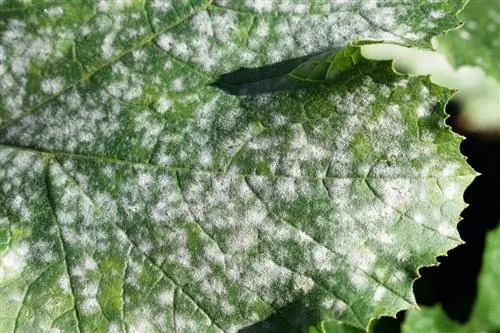- Author admin leonars@hobbygardeners.com.
- Public 2023-12-16 16:46.
- Last modified 2025-01-23 11:21.
You look after your garden with great care and yet suddenly powdery mildew appears on the leaves? This may be due to unfavorable temperatures. However, you should not rule out excessive care. In order to find out the exact reason for the presence of the parasite, you will learn about the most common causes of mildew below.
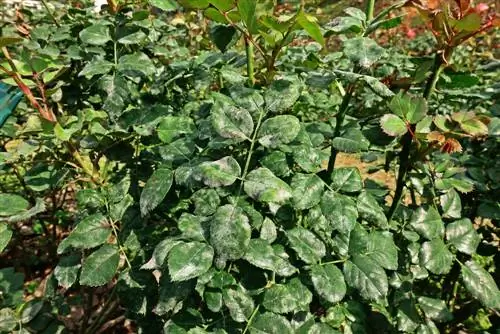
What are the causes of mildew?
Mildew is caused by fungi and is favored by unfavorable conditions such as incorrect watering, too much nitrogen or plants planted too densely. Powdery mildew occurs in warm and dry conditions, while downy mildew occurs in high humidity.
Mildew is caused by a fungus
In botany, a distinction is made between two types, powdery mildew and downy mildew. Both diseases are caused by a fungus. This pest usually specializes in a single plant variety. For example, cucumber mildew does not affect roses.
Causes of powdery mildew
Powdery mildew is also known as the “fair weather fungus” because it forms in warm and dry conditions. It is located on the top of the leaf and is visible as white spots, which later form a dirty, brown film. You can mainly find powdery mildew on
- Asters
- Roses
- Cucumbers
- Carrots
- and gooseberries
Causes of downy mildew
In contrast, downy mildew, the “bad weather fungus,” occurs when the air humidity is high. Symptoms occur on both the top and bottom of the leaf, with the film having a purplish cast and the spots being yellowish. Downy mildew mainly affects
- cabbage
- Radish
- Black Roots
- Peas
- Lamb lettuce
- Lettuce
- Spinach
- Radish
- Grapes
- and onions
Care errors that promote mildew
Incorrect watering, fertilizing or planting promote the development of mildew. What you should pay attention to:
- Too much nitrogen promotes fungal formation and weakens the plant's defenses. Dose the fertilizer carefully
- When watering, wait until the substrate is dry. Only water the roots, never the leaves, and give the water in the morning if possible. Otherwise the liquid will build up overnight because it won't evaporate. The resulting moisture invites downy mildew
- Plants that are planted too densely also cause a high level of humidity in the environment because the air cannot circulate sufficiently
Recurrent mildew
Mildew again? You have only just completely cut the affected plant. But have you also paid attention to adequate care? Never simply throw the infected branches into the compost. From here the fungus spreads to settle on neighboring plants. It is best to burn the diseased shoots or dispose of them in the household waste.

